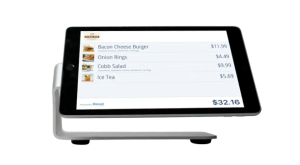Facts About Credit Cards That Could Influence Your Loan Approval
When it comes to personal finance, few tools are as double-edged as credit cards. On one hand, they provide convenience, rewards, and financial flexibility. On the other hand, careless use can lead to debt traps and damage to your creditworthiness. What many people don’t realize is that facts about credit cards play a much bigger role than just helping you make day-to-day purchases—they can directly affect your chances of securing a loan.
Whether you’re applying for a home loan, a car loan, or even a personal loan, lenders carefully review your financial behavior. And credit cards, being one of the most widely used financial products, often provide the clearest window into your borrowing habits. That’s why understanding how your credit card activity impacts loan approval is crucial.
In this guide, we’ll explore the key facts about credit cards that could influence your loan approval, break down how lenders evaluate your financial profile, and give you actionable tips to ensure your credit card use helps—not hurts—your loan prospects.
Why Lenders Look at Your Credit Card Usage
When you apply for a loan, lenders don’t just glance at your income and nod yes or no. They want to know how responsibly you handle borrowed money. Your credit card history offers one of the clearest pictures of this because:
-
It shows how often you borrow (via credit card balances).
-
It reveals whether you pay back on time.
-
It highlights your spending patterns and financial discipline.
-
It impacts your credit score, which is a critical metric in loan decisions.
Put simply: your credit card is more than plastic—it’s a financial report card.
Key Facts About Credit Cards That Influence Loan Approval

Here are the most important facts about credit cards that you should know before applying for a loan:
1. Credit Utilization Ratio Matters
Credit utilization ratio is the percentage of your available credit limit that you actually use. For example, if your credit card limit is ₹1,00,000 and you typically spend ₹70,000 on it, your utilization ratio is 70%.
-
Lenders prefer this number to stay under 30%.
-
High utilization signals financial stress or dependency on credit.
-
Even if you pay off balances on time, consistently high usage can still reduce your credit score.
So if you’re planning to apply for a loan soon, try to keep your utilization low in the months leading up to your application.
2. Payment History Is the Biggest Factor
Of all the facts about credit cards, this one carries the most weight: your payment history accounts for nearly 35% of your credit score.
-
One missed payment can stay on your credit report for up to seven years.
-
Consistently paying the minimum due isn’t enough—lenders prefer full payments.
-
A flawless payment history reflects strong financial discipline.
If you’re forgetful, set up autopay or reminders to avoid late payments.
3. Multiple Credit Cards Can Be Both Good and Bad
Owning several credit cards isn’t necessarily a red flag. In fact, when used responsibly, it can help by spreading out your utilization ratio and showing you can manage multiple accounts. However:
-
Applying for too many new cards at once creates multiple “hard inquiries” that lower your score.
-
Too many open accounts with high credit limits can make lenders cautious about your borrowing capacity.
Balance is key—use what you can manage without overextending yourself.
4. Credit Age Affects Trustworthiness
The average age of your credit accounts also matters. If you’ve had the same card for 8–10 years and used it responsibly, that’s a positive indicator.
-
Older accounts show long-term credit management.
-
Closing old cards can shorten your credit history and lower your score.
Before taking out a loan, avoid closing your oldest credit card account.
5. Types of Credit Influence Lender Decisions
Lenders prefer to see a mix of credit types—credit cards, personal loans, car loans, mortgages—rather than just one type of borrowing.
-
Having only credit cards might make you look less experienced with long-term debt.
-
Successfully managing different types of credit demonstrates financial maturity.
If you’re preparing for a big loan, like a home loan, your credit profile should ideally show both revolving (credit cards) and installment (loans) accounts.
6. Recent Credit Behavior Sends Signals
Your recent activity is under the spotlight when applying for a loan. If you’ve opened several new credit cards in the last six months, it may appear you’re desperate for credit.
-
Too many new accounts = higher risk.
-
Several new hard inquiries = score dip.
If a big loan is on the horizon, avoid applying for new credit cards for at least 6–12 months beforehand.
7. Debt-to-Income Ratio Matters Too
While not solely about credit cards, this metric is heavily influenced by them. If a significant portion of your monthly income goes toward paying card bills, lenders may question your repayment capacity.
-
Ideally, your debt-to-income ratio should be below 40%.
-
Keeping credit card balances low reduces your financial burden on paper.
8. Credit Card Rewards Don’t Impress Lenders
You may love your cashback, air miles, or points, but lenders don’t care. They only care about how responsibly you manage your card, not how many free flights you’ve earned.
This is a small but important fact—don’t confuse personal perks with creditworthiness.
How Credit Scores and Credit Cards Connect
Your credit card usage feeds directly into your credit score, which is one of the first things lenders evaluate. Here’s a breakdown of what goes into your score and how credit cards affect it:
-
35% – Payment History (Did you pay on time?)
-
30% – Credit Utilization (Are you maxing out your limits?)
-
15% – Length of Credit History (How long have you had your cards?)
-
10% – Credit Mix (Do you only have credit cards or other loans too?)
-
10% – New Credit Inquiries (Have you recently applied for many cards?)
This means more than 70% of your score is shaped by how you use credit cards.
Read more:- Everything You Need to Know About 57 mm Thermal Credit Card Rolls
Tips to Make Your Credit Cards Work for Loan Approval

Now that we’ve covered the facts about credit cards, let’s explore practical steps you can take to ensure they boost your chances of loan approval instead of hurting them:
-
Pay your bills on time, every time.
-
Keep utilization under 30%—lower is better.
-
Don’t apply for new cards right before a loan application.
-
Maintain your oldest card account.
-
Limit outstanding balances across multiple cards.
-
Regularly check your credit report for errors.
-
Use autopay and reminders to avoid accidental late payments.
These steps not only help your loan application but also strengthen your overall financial health.
Real-Life Example: How Credit Cards Impact Loan Approval
Imagine two friends, Ravi and Sameer, both applying for a home loan:
-
Ravi uses one credit card with a ₹2,00,000 limit. He usually spends ₹50,000 and pays it in full every month. His utilization is 25%, and his payment history is spotless. His credit score is high.
-
Sameer uses three credit cards totaling ₹3,00,000 limit. He has maxed out two cards, paying only the minimum balance. His utilization is 90%, and he missed one payment last year. His credit score is much lower.
Who do you think the lender trusts more? Ravi, of course.
This illustrates how two people with similar incomes can have very different loan outcomes based on how they handle credit cards.
Read it also:- Affordable Merchant Credit Card Services for Small Business Owners
Common Misconceptions About Credit Cards and Loan Approval
-
“If I have no credit cards, I’ll look responsible.”
Actually, having no credit history makes it hard for lenders to assess you. -
“As long as I pay the minimum due, I’m safe.”
Wrong. Carrying balances increases interest costs and signals financial strain. -
“Too many cards automatically mean rejection.”
Not necessarily—what matters is how you use them.
Building a Loan-Friendly Credit Card Strategy
If you know a big loan is in your future—say buying a house or expanding a business—start preparing months in advance:
-
Review your credit report six months before applying.
-
Reduce outstanding balances.
-
Avoid unnecessary new cards.
-
Demonstrate consistent financial behavior.
This preparation can make the difference between loan approval and rejection, or even between a high and low interest rate.
Why Choosing the Right Financial Partner Matters
While your personal credit behavior is critical, having the right financial partner also plays a huge role. At Motus Financial, we guide individuals and businesses through the complexities of credit and loan applications. Our experts not only help you understand the facts about credit cards but also provide tailored strategies to improve your loan eligibility.
Stay Connected with Us
We understand that managing credit and loans requires trusted guidance. That’s why Motus Financial keeps an active presence through our Google Business Profile (GBP). There, you can:
-
Read genuine client reviews.
-
Get quick updates about our services.
-
Find our location and contact information instantly.
-
Message us directly for personalized advice.
By following us on GBP, you’ll always stay informed about the latest financial tips and services designed to help you succeed.
Contact Us
At Motus Financial, we believe financial literacy is the key to financial freedom. If you’re concerned about how your credit card usage may affect your loan approval—or if you simply want to build a stronger credit profile—our team is here to help.
📞 Call us today to speak with an advisor.
📧 Email us for personalized consultation.
🌐 Visit our website to explore more resources.
Your financial future starts with the right guidance. Let us be that partner for you.
Final Thoughts
Credit cards are more than a convenience—they’re a powerful factor in shaping your financial reputation. By understanding the facts about credit cards and how they influence loan approval, you can make smarter choices today that set you up for success tomorrow.
At the end of the day, it’s not about avoiding credit cards—it’s about using them wisely. Treat your credit card as a financial tool, not free money, and you’ll find that loan approvals come easier, interest rates are lower, and opportunities are greater.








 Our POS systems are designed to streamline in-store transactions. With features like inventory management, sales reporting, and customer tracking, our POS solutions help you run your business more efficiently. Our terminals are compatible with various payment methods, including chip cards, contactless payments, and mobile wallets.
Our POS systems are designed to streamline in-store transactions. With features like inventory management, sales reporting, and customer tracking, our POS solutions help you run your business more efficiently. Our terminals are compatible with various payment methods, including chip cards, contactless payments, and mobile wallets.
